Buran Ghati (altitude 4572 meters) — also called Burando pass — trek is a classic sheepherder’s route connecting the Pabbar valley of Shimla to Baspa valley of Kinnaur, Himachal Pradesh.
The icing on the cake is Chandernahan Lake — the source of the Pabbar River. The river is a right-side tributary of the Tons River, which itself is a tributary of the Yamuna River. An hour’s hike from Litham Thach meadows will take you near the glacial lake.
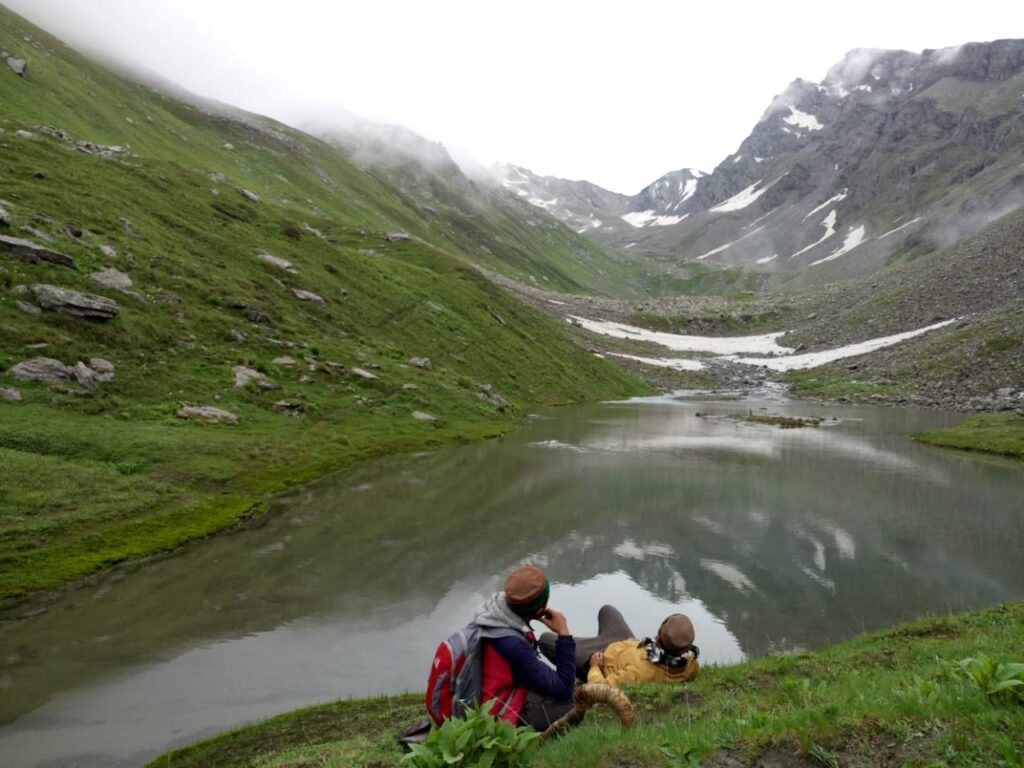
The Buran Ghati pass trek is the easiest hiking route from Baspa into Pabbar valley — the other routes are:
- Bundajan trail (altitude 4450m).
- Yusu pass (altitude 4750m).
- Gunas pass (Sangla valley to Janglikh village via Sangla Kanda and Soroden lake).
- Rupin pass (Sangla to Dodra – Kwar).
Buran Ghati Pass ⛰
This trek from Sangla valley in Kinnaur begins in Brua (also known as Bruang or Buran village) and ends in Janglik village. Janglikh is a lovely village in Shimla
district’s Pabbar valley. Shepherds and inhabitants of Janglikh village and the surrounding region still use this trek route.
⚡ Buran Ghati 2025 Trek Rundown
| Region | Baspa & Pabbar valley |
| Trip Span | 8 days and 7 nights |
| Difficulty Level | Moderate |
| Apex Altitude | 4725 m (Buran pass) |
| Best Time | Mid-May to September month |
| Trail Length | ~ 20 km. |
| Scheduled events | in May, June, and September |
| Max group size | 10 |
| Starts from | Either Brua village (Sangla valley) or Janglikh village of Pabbar valley, Rohru |
| Ends at | Janglikh/Brua village |
| Activity | Camping, walking, hiking, glacier walking, boulders and scree slope crossing. |
⚐ Trek Itinerary for Buran Pass
- Day #1: Shimla – Sangla
- Day #2: Sangla – Brua Village
- Day #3: Brua village – Brua Kanda
- Day #4: Brua Kanda – Pass Base Camp
- Day #5: Pass Base Camp – Litham (A detour to Chandranahan lake)
- Day #6: Litham – Dayara
- Day #7: Dayara – Janglik Village
- Day #8: Janglikh village – Shimla
Note: The days of the itinerary are not fixed.
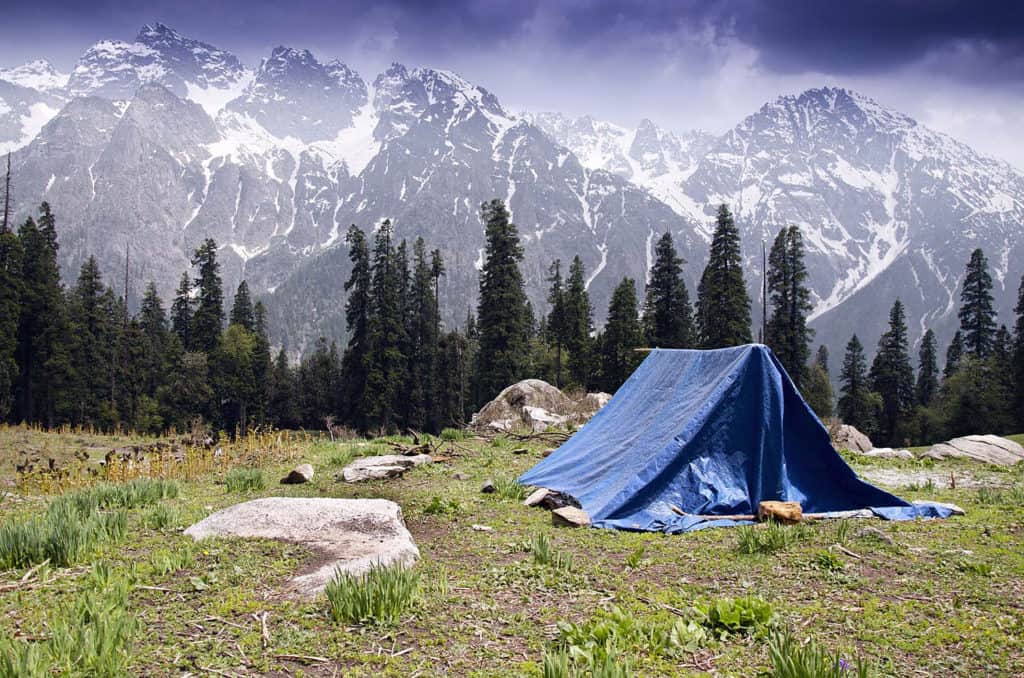
Buran Ghati Trek Events in 2025
Our Buran Ghati pass departures are scheduled for second week of May, June and first week of September. We are looking for a minimum group size of 5 people.
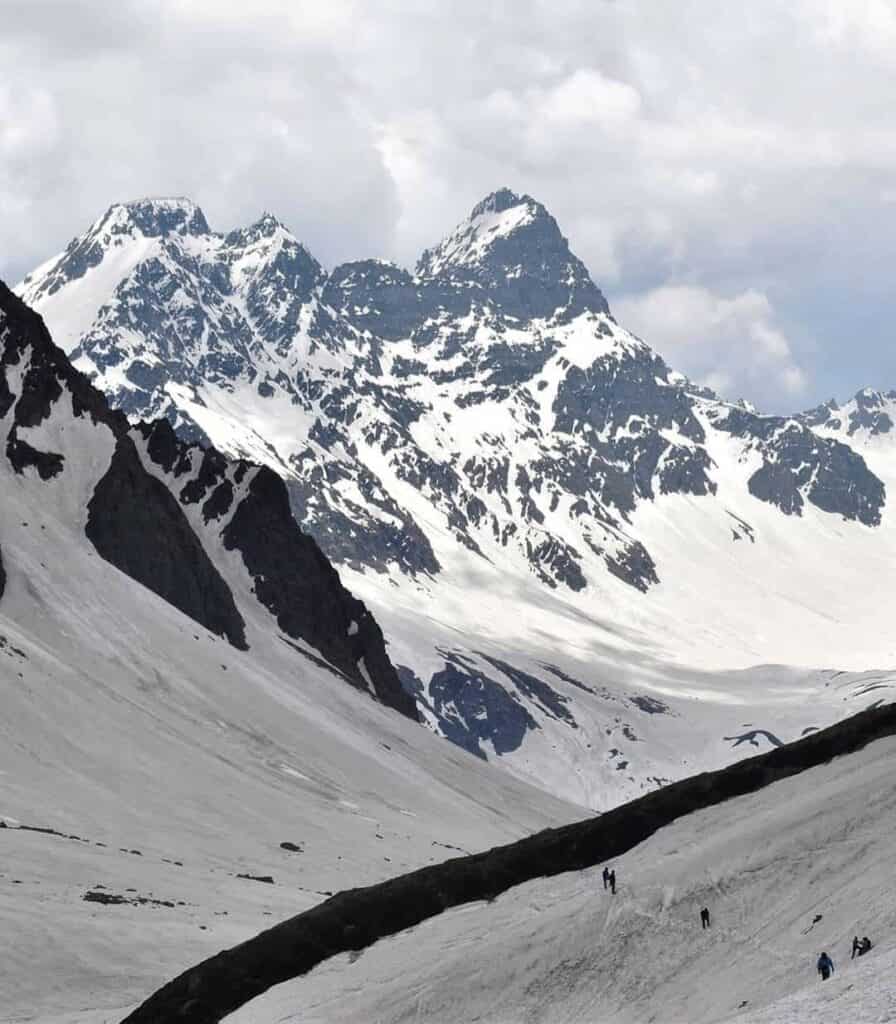
We also can run the customized Buran Ghati trips for smaller groups (less than 5 people) for an additional cost. The trek dates are subjected to the notifications and the pandemic guidelines by the government.
₹ What Does Buran Ghati Pass Trek Cost?
Our cost estimation for Buran Ghati 2025 trek events is based on the number of factors like: the group size, pick-up place (Chandigarh/Shimla) and add-ons needed like backpack offloading, accommodation before and after the trek & drop location (Shimla/Chandigarh). Reach out to us via an email/WhatsApp to avail group offers & early bird discounts.
A Brief History of Buran Ghati Pass Trek Route
In times when there was no road to Kinnaur; when people had to walk over high passes to reach Kinnaur, the trek through the Pabbar valley was most frequented by both locals and European travelers.
Travel by Europeans gave access to rare cash and employment to villagers of Tungu, Romai and Janglikh. Local travelers, including mostly Kinnauras gave wealth to these villages through a barter system.
The people of Janglikh and Tungnu-Romai still talk about the time when Kinnauras (people of Brua, Sapni, etc) were so poor that their main cereal was Buckwheat (called Fafra in Kinnauri dialect); while Janglikh people had the luxury of eating rice and wheat. Brua and Sapni villagers used to shop in Janglikh and Tungnu villages.
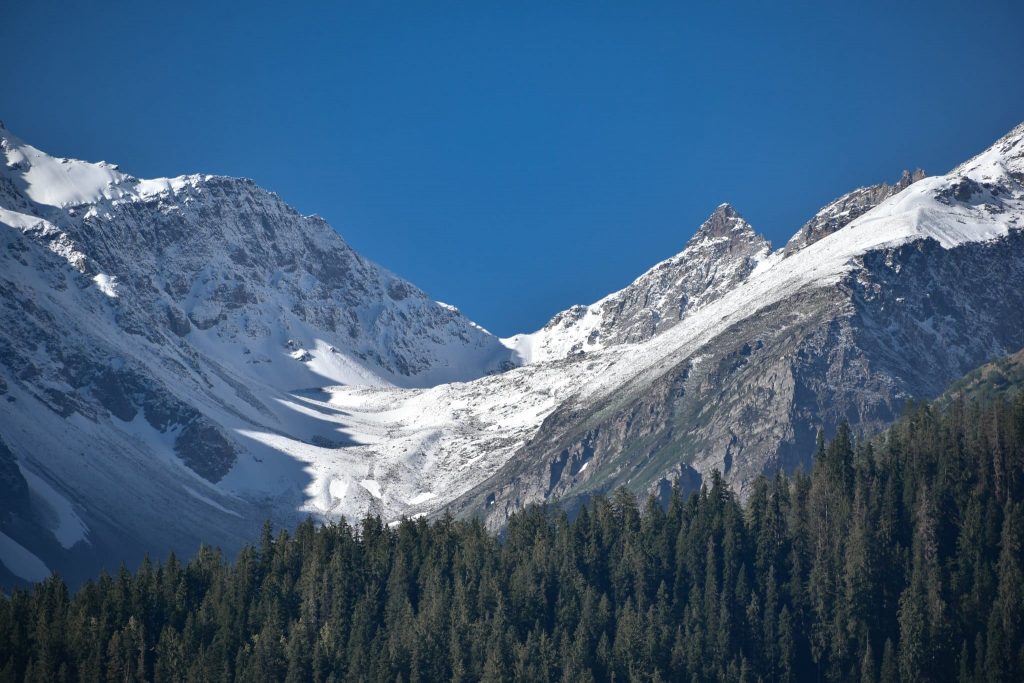
However, with the subsequent floods in Andhra Khad, Pabbar river and damage to British infrastructure as well as easier access to Kinnaur through the construction of the Hindustan-Tibet Road, these villages fell out of favor and dipped into seclusion.
But, as they say, history repeats itself; the sun is once again beginning to shine on the economic prospects of these villages.
There are two legends about Janglikh village’s name. Some believe that it is named after the village deity “Jakh or Jakhoh”.
According to the second legend, this village was infested with wild animals and could only be reached after walking through miles and miles of dense forest.
The village location shaped the villagers into a fearless tribe who were at home in the forest among wildlife raids.
Therefore, outsiders began calling these villagers “Junglees or Junglee logs” and the village of Janglikh as a result. Finally, ‘Jungli’ got corrupted to Janglikh. The village still has a dense forest around it and is subject to occasional wildlife raids.
Detailed Itinerary & Route
Day 1: Depart from Shimla to Sangla
The Baspa Valley is named after the largest village of the valley, Sangla.
Located in the middle of the valley and about 18km from the nearest highway, i.e NH 5, it has found a place in an itinerary of every traveler for its spellbinding attractions like Kamru, Chansu, Basteri, Rakcham, Chitkul village and Ranikanda meadows.
Day 2: Sangla – Brua Village
On Day two head towards Brua Village, a sub-locality under Sangla town.
The trek starts from Brua village.
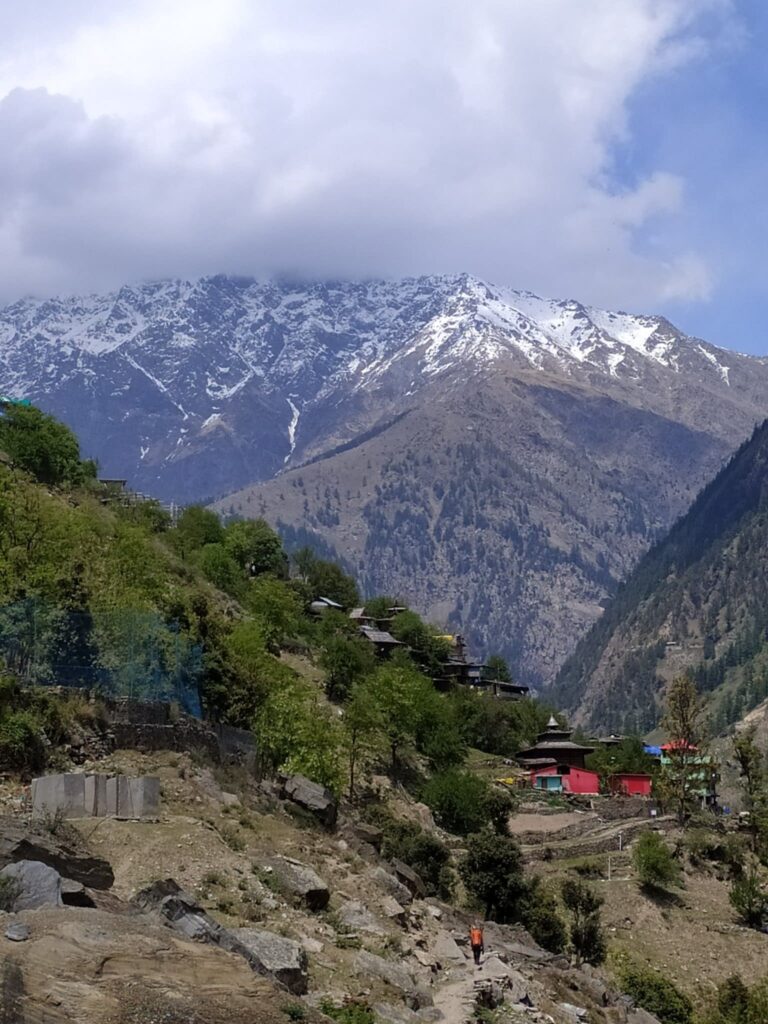
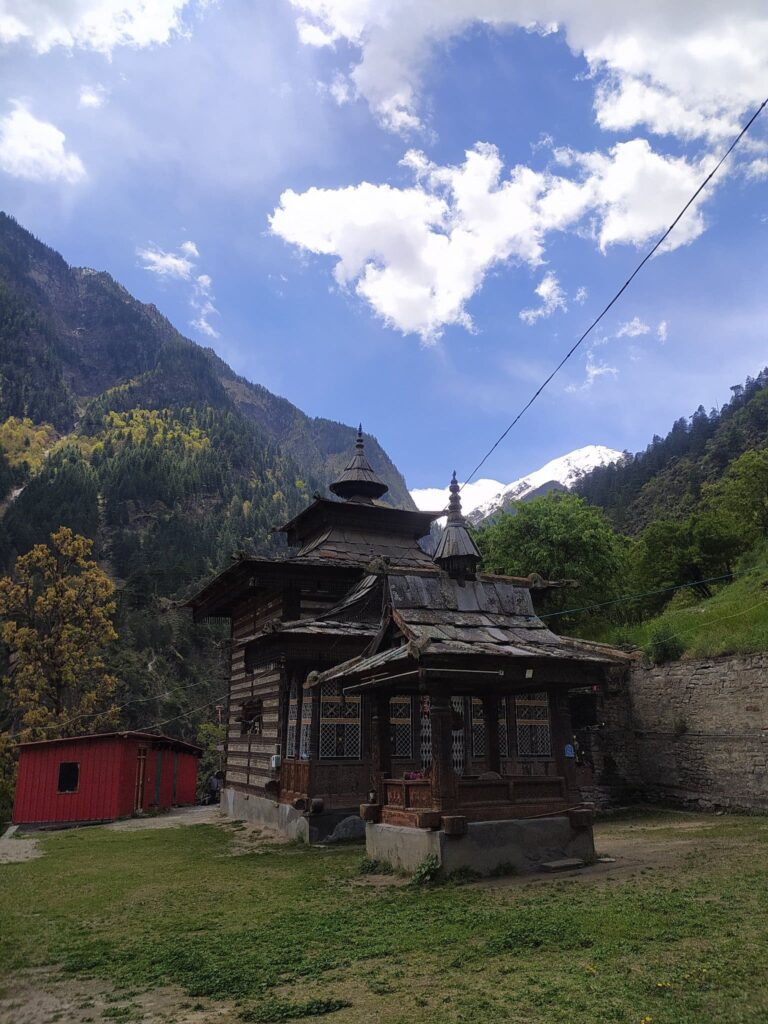
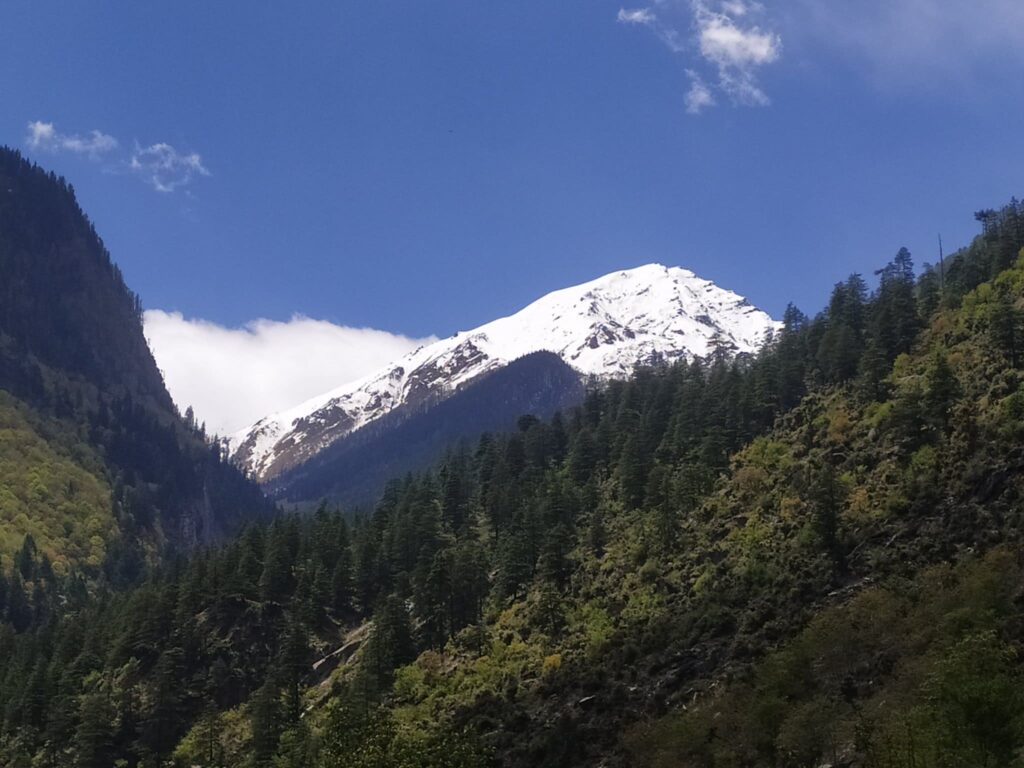
The trail changes surprisingly and on the way witness the orchards fields welcoming you for the overwhelming trek. The trail is very beautiful. Dinner and overnight stay in tents just above the village.
Day 3: Brua Village – Buran Kanda
There are two routes to reach Buran Kanda. One is via Shong village(it is close to Sangla) and the second route is via Brua village — the one we are following.
After having a fresh breakfast, start early from Brua village to the pastures of Buran Kanda. As we gain altitude, Deodar and fir forests give way to the beautiful Birch forest — found above the 3000m altitude.
Buran Kanda gives a magnificent view of the Kinner Kailash Range towering over the Baspa Valley. Dinner and overnight stay in Bura Kanda.
Day 4: Brua/Buran Kanda – Buran Pass Base Camp.
On Day #4 we cross the meadows of Bura Kanda and reach the base camp of the Buran pass, which is also known as the Burando. Dinner and overnight stay in tents. Camp under the magnificence of millions of stars.
Day 5: Pass Base Camp – Buran pass -Litham (A detour to Chandranahan lake)
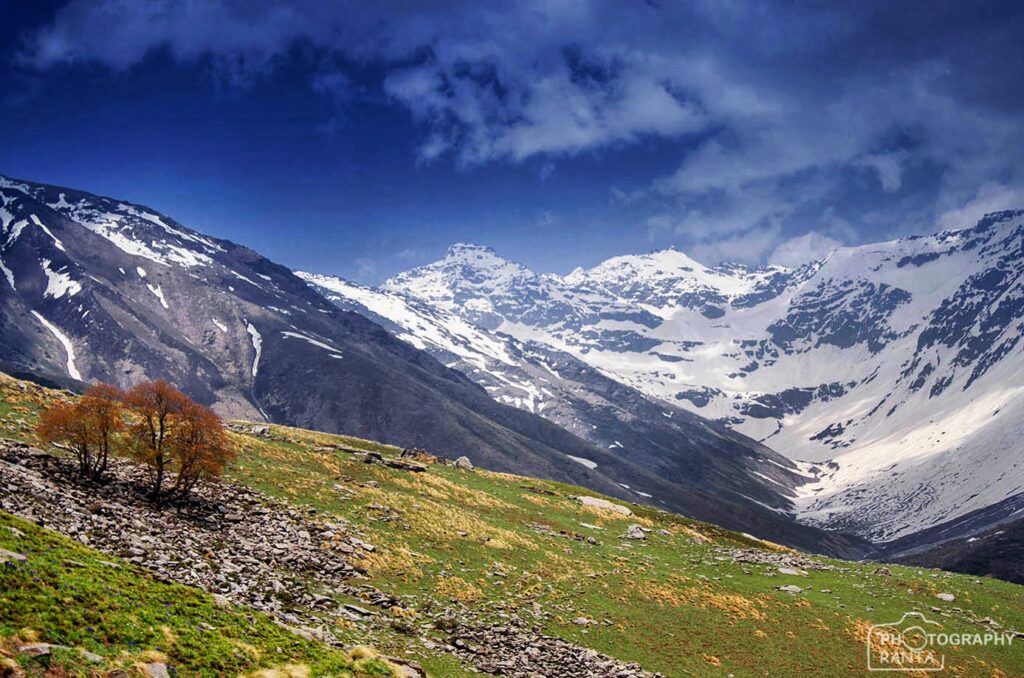
Day 05 includes crossing Buran pass (4570 m) and camping at Litham. It is an ancient route, English travelers during British rule and the Shepard from the villages often preferred this cooler route to Kinnaur to the arduous travel through the hot Sutlej valley.
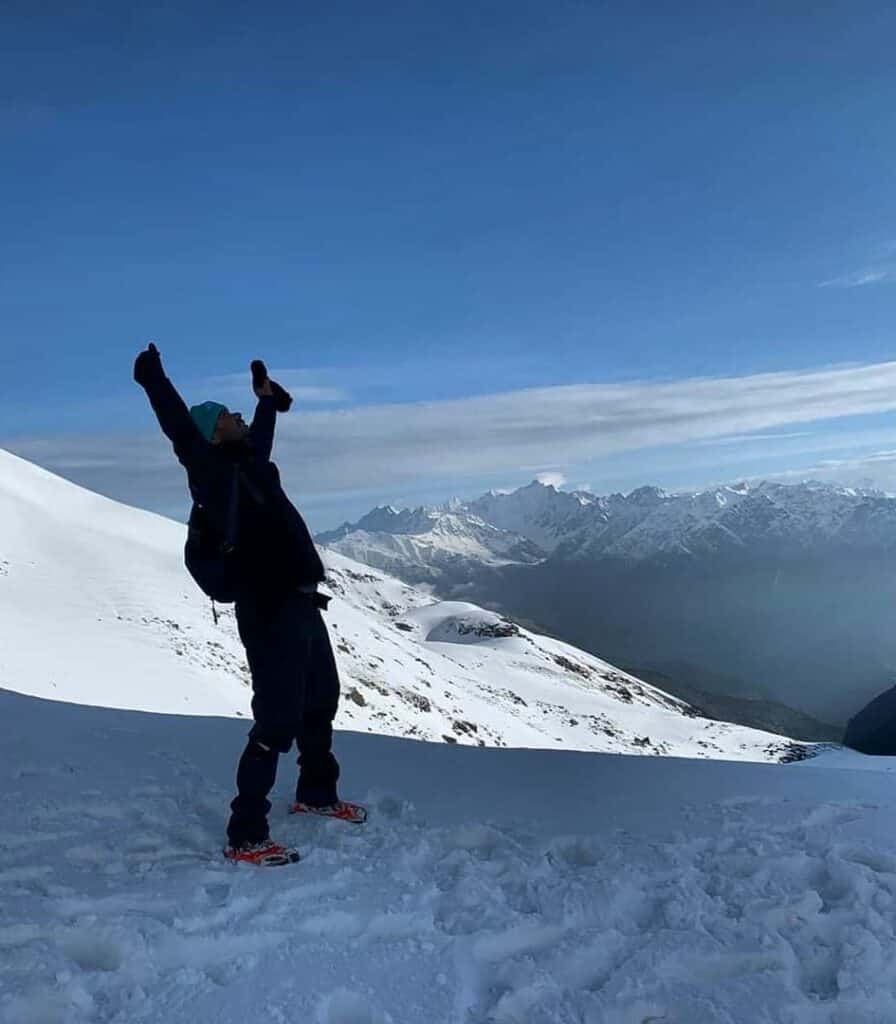
After setting up the camps at Litham Thach, we would take a detour to the Chandranahan lake. A ~1-hour hike would take us to the shore of Chandranahan lake — the source of the Pabbar river. Overnight camping at Litham.
Day 6: Litham – Dayara Thach
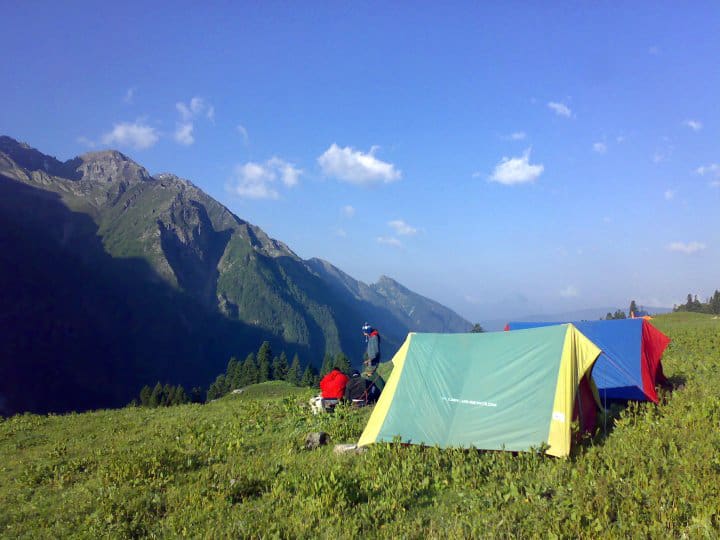
Today descends down from Litham to Dayara. The trek is moderate and the landscape is pretty good enough to overshadow the tiring journey. Get overwhelmed by the seamless green meadows and Birch-fringed pastures on the right bank of the Pabbar river. The perfect place to unwind and reflect. Overnight Tented accommodation at Dayara.
Day 7: Dayara – Janglik Village
Perched at a prominent spur, Janglikh — the last village of the Pabbar valley — is bordered by the Pabbar river on one side and its right side tributary, Tangnu on the other.
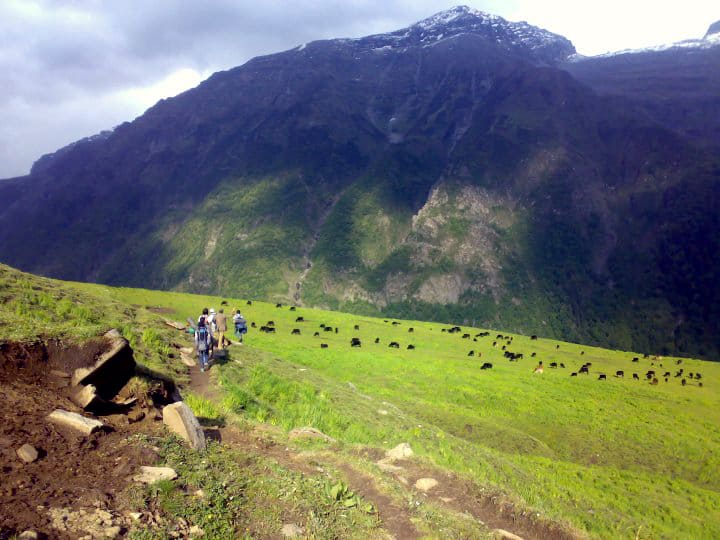
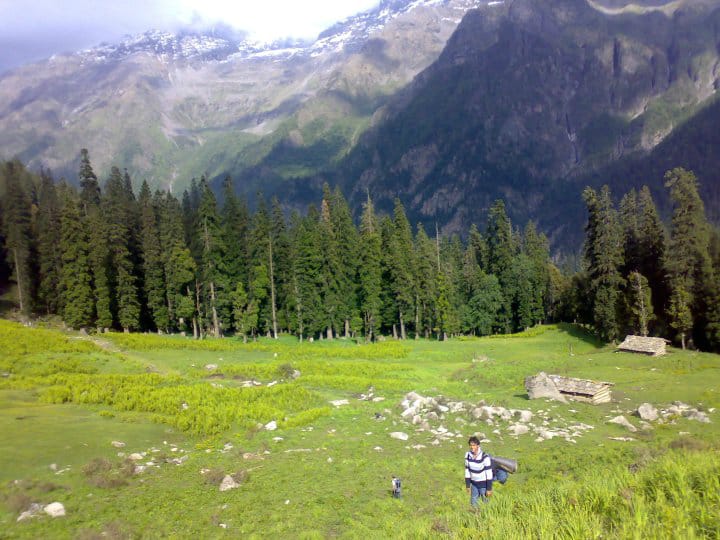
Trek down from Dayara to the village of Janglikh. Dinner and overnight stay in the village homestay/ tents.
Day 8: Janglikh village – Shimla
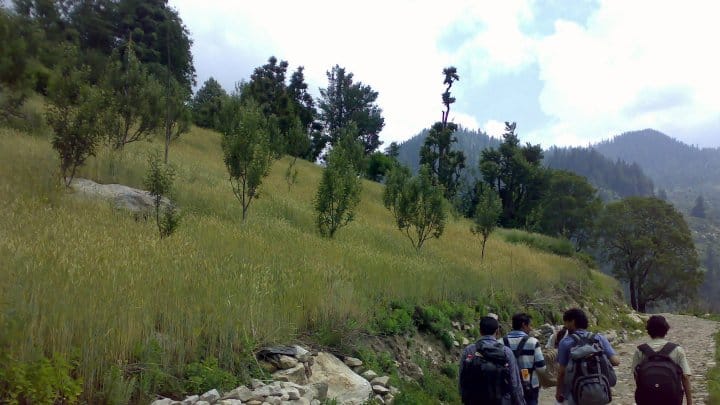
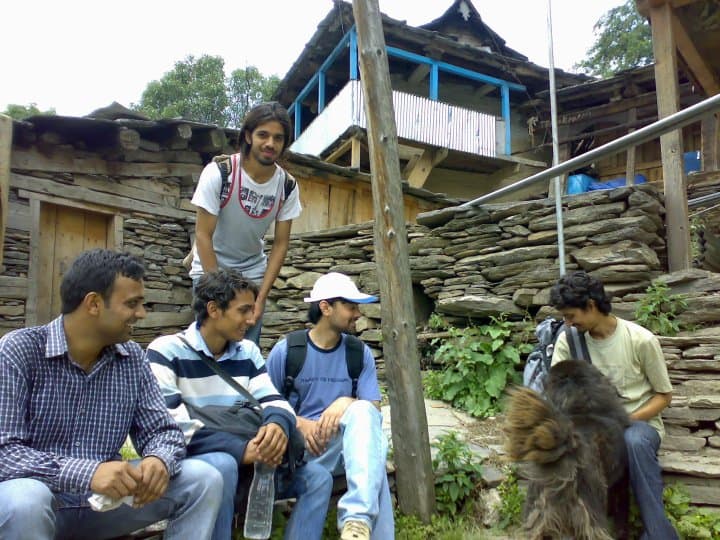
Drive back from Janglik to Shimla which takes around 5 hours.
Trek Fee Includes
- All arrangements for overnight stays during the trip.
- Camping & Climbing gear.
- All food expenses.
- Food will usually consist of morning breakfast, lunch, evening high tea, and dinner.
- All food will be vegetarian.
- Specially trained certified guides trained for emergency situations.
- Local guides and workers with in-depth knowledge about the local area.
- One luggage per person will be transported by us.
- Inner line permits (if required) and arrangements en route will be arranged by the operator.
- All stays and lodging on a twin sharing basis shall be provided..
Excludes
- Any kind of personal expenses.
- Any kind of insurance.
- Anything not mentioned in the inclusion section.
- Camera fees or any other costs arising out of unforeseen circumstances or situations beyond our control.
NOTE: Trekkers are required to bring a medical certificate deeming them fit for high-altitude trekking at the start of the trek.
Backpack carrying: A porter will carry your backpack, please do not bring extra items but only the essentials needed for high altitude trek. Besides detailed planning, taking care of all the logistics, food, and good equipment, packing a backpack efficiently and carrying essential things play a key role in the success of an expedition.
Buran Ghati Trek Bare Essentials
- A pair of good quality waterproof trekking boots.
- Three pairs of socks.
- Two pairs of waterproof hiking pants.
- A pair of shorts
- Two pairs of fleece jumpers.
- Two pairs of thermal tops and bottoms
- One down jacket.
- Headgear (1 beanie/skull cap, 1 buff, and 1 trekking cap).
- A pair of thick gloves
- Personal hygiene essentials (alcohol-based gel, hand sanitizer, soap, towels, toilet papers, baby wipes, etc.)
- UV-block sunglasses.
- First aid kit.
- A water purifier and filtration bottle.
FAQs
Yes. Buran Ghati trek in October month is recommended for people are into astrophotography or dawn u0026 dusk photography. The sky during this time stays clear, and the air is ideally crisp for shooting the night sky or Milky Way.
Raacho Trekkers have a team of local guides who have trekked this region for over 10 years now. Apart from trek/terrain expertise, they offer valuable insights on the everyday life of local people, their cultures and sociocultural traits.
Buran Ghati is a moderately difficult trek. If the weather conditions are perfect, the pass can be climbed by a person (who is in good shape), who never been to the Himalayas.
Both Buran Ghati and Rupin pass are located on similar altitudes — Rupin pass is slightly higher. The terrain and landscape is also similar. In fact, the Rupin pass is placed on the same range and aerial distance between the two pass shouldn’t be more than a few kilometers. Choosing one trek over the other is a personal choice. We don’t prefer Buran over Rupin or vice-versa. You shouldn’t either.
Yes! We recommend May month to be the best time for the Buran Ghati trek. In May, you’lll witness the panoramic vistas of Himalayan ranges and lush greenery of the Pabbar valley — sans repulsive rains.
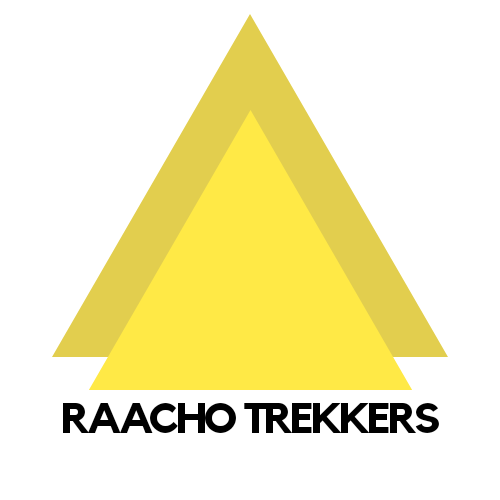
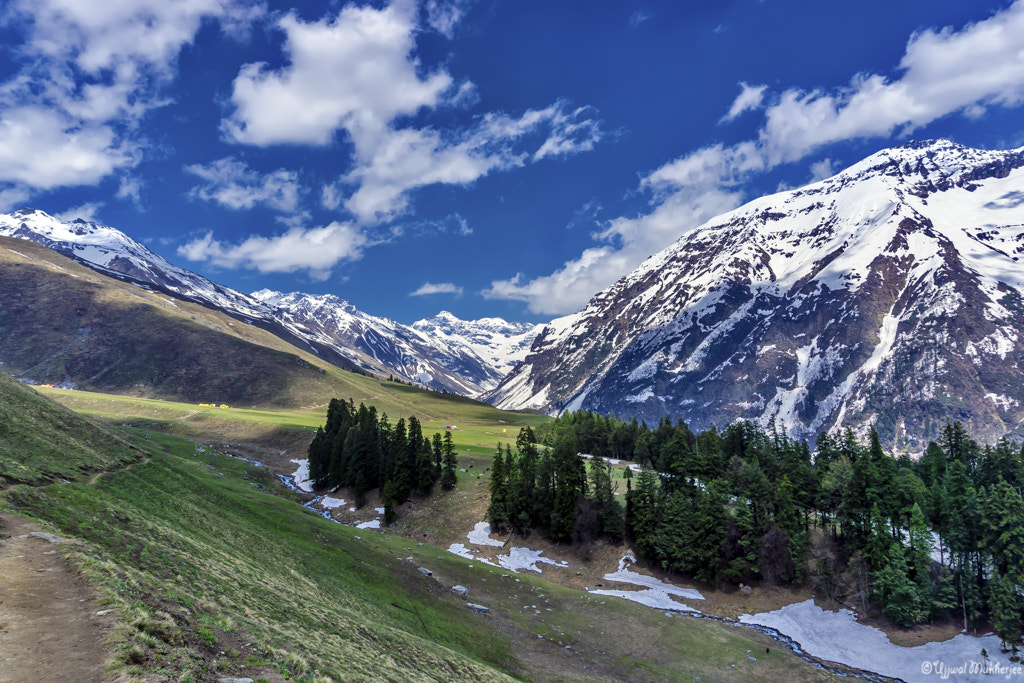
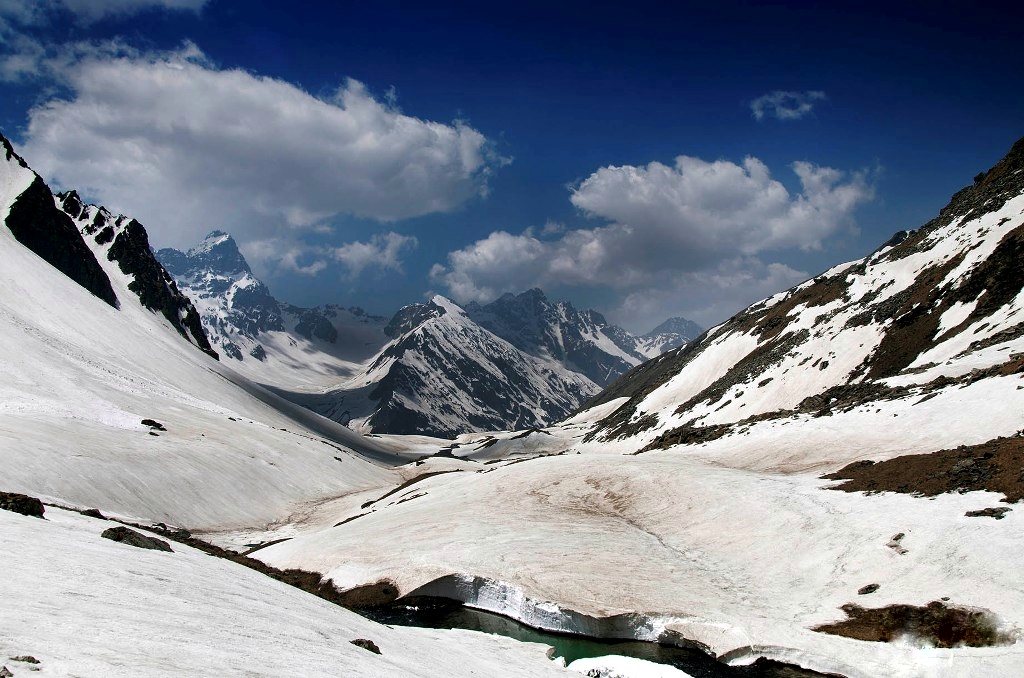
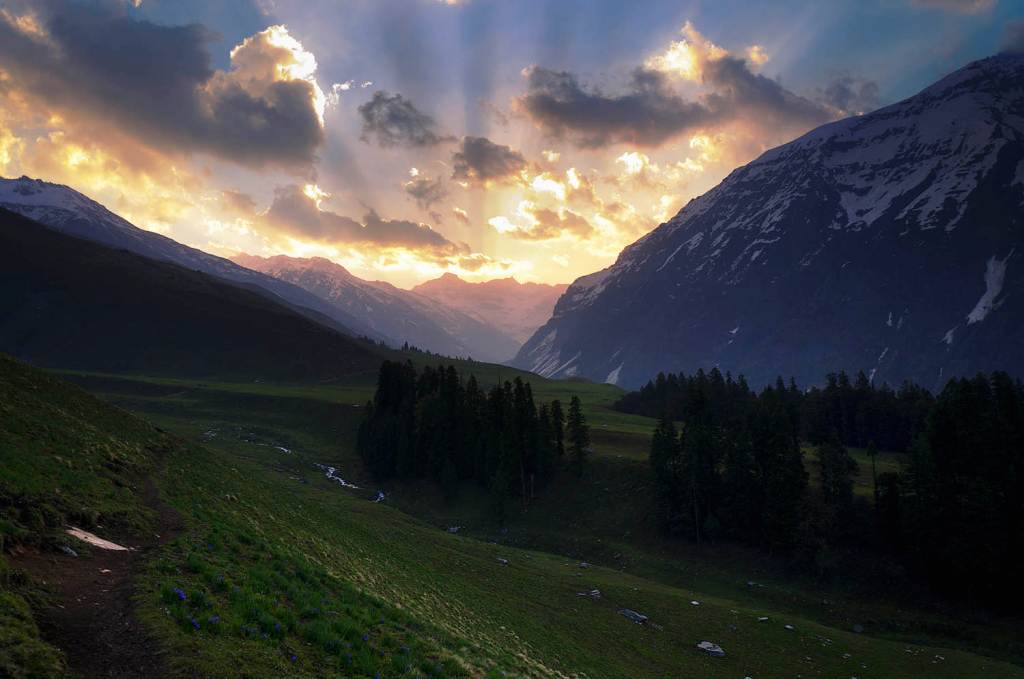
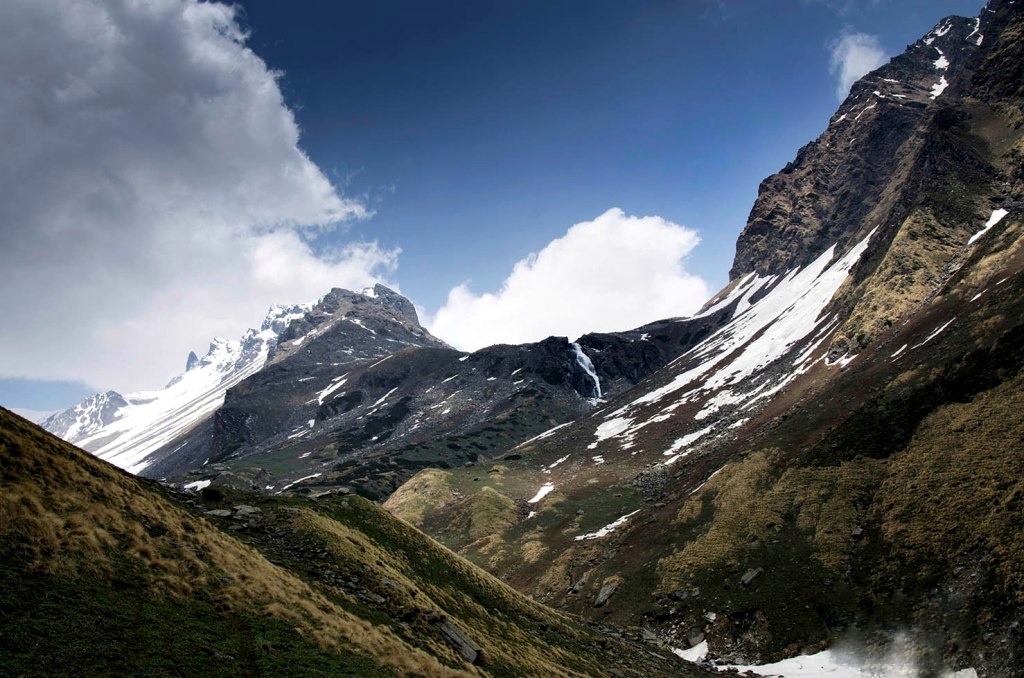
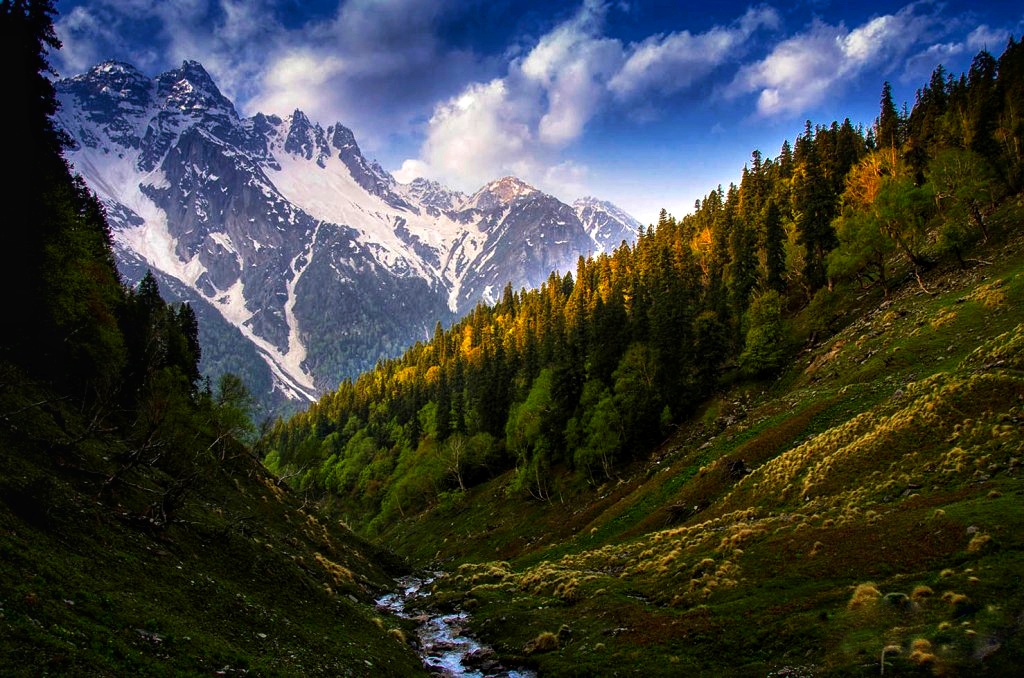
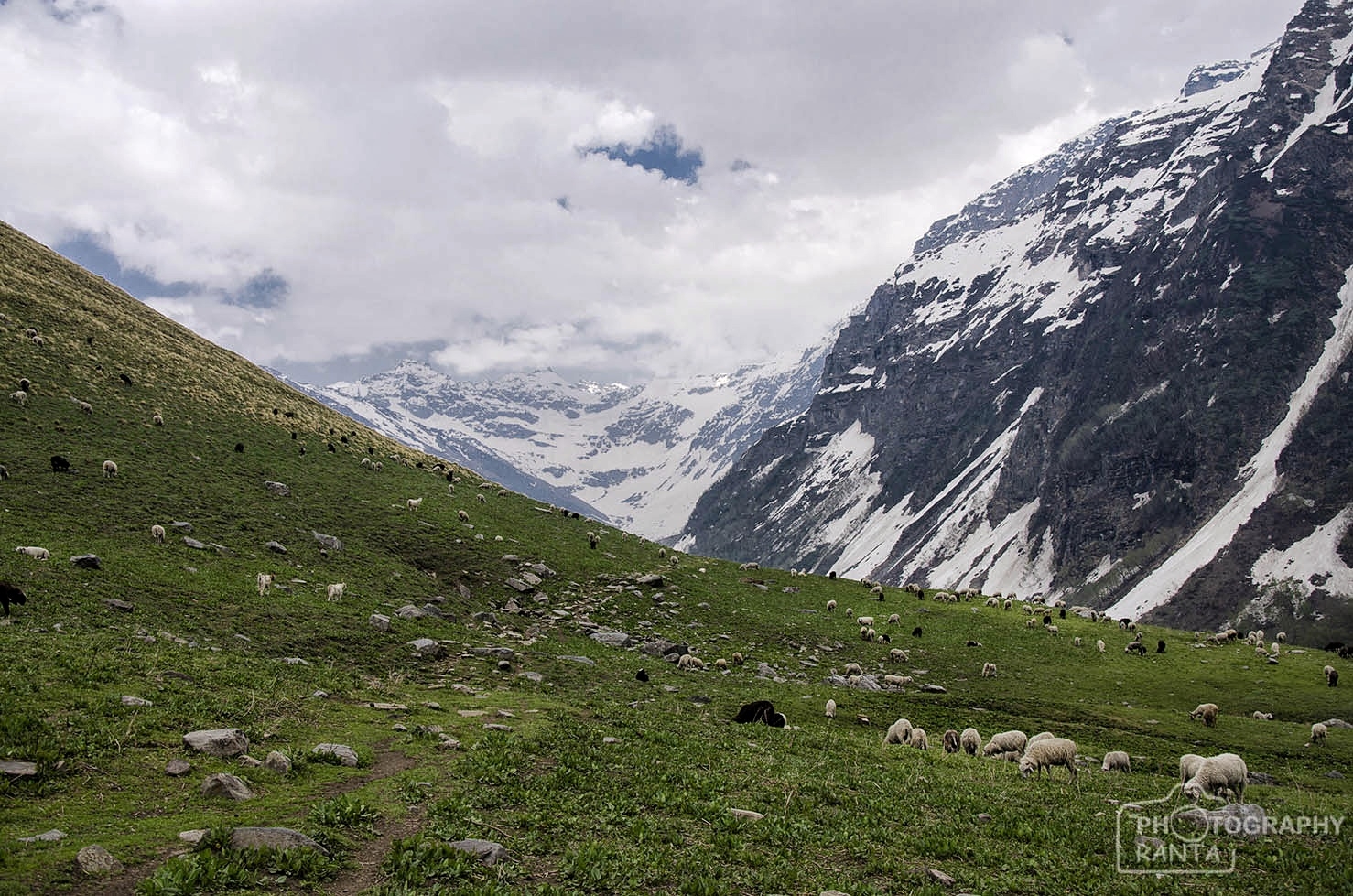
Leave a Reply